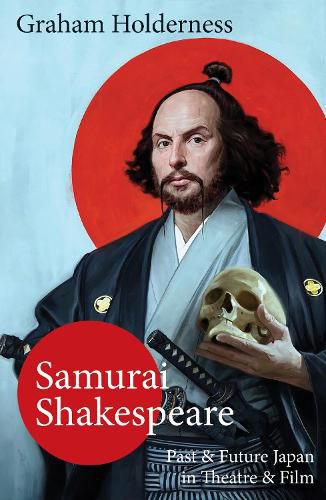Readings Newsletter
Become a Readings Member to make your shopping experience even easier.
Sign in or sign up for free!
You’re not far away from qualifying for FREE standard shipping within Australia
You’ve qualified for FREE standard shipping within Australia
The cart is loading…






This title is printed to order. This book may have been self-published. If so, we cannot guarantee the quality of the content. In the main most books will have gone through the editing process however some may not. We therefore suggest that you be aware of this before ordering this book. If in doubt check either the author or publisher’s details as we are unable to accept any returns unless they are faulty. Please contact us if you have any questions.
This highly original new book by a leading Shakespeare expert and cultural critic is a book of convergences.
First, the collision between Japan and Shakespeare, who was imported by the Meiji Empire in the 1880s, along with western technology and culture, as a contemporary dramatist.
Second, the later historicist juxtaposition of Shakespeare’s plays with the 600-year long samurai era, as engineered by Japanese cinema and theatre directors such as Akira Kurosawa and Yukio Ninagawa, whose major productions of Shakespeare’s tragedies form the focus of this study.
And third, the encounter between these masterpieces of Japanese Shakespeare adaptation and the author’s own idiosyncratic perspective on the world of the samurai, shaped over a lifetime of diverse cultural influences.
Here the focus is much broader and more eclectic: 1950s war films, CND anti-nuclear propaganda, Ian Fleming’s You Only Live Twice, Edward Zwick’s film The Last Samurai. Nothing is off limits in this personal testimony, as the author writes frankly about his wife’s Buddhism, his collection of samurai swords, his problems with alcohol, his wanderings in Kew Gardens, his experience of Coronavirus lockdown.
This frank revelation of how a specific hermeneutic perspective is formed throws light on Japanese Shakespeare, on the nature of critical interpretation, and on the role of imagination in our reception of literature and drama.
$9.00 standard shipping within Australia
FREE standard shipping within Australia for orders over $100.00
Express & International shipping calculated at checkout
This title is printed to order. This book may have been self-published. If so, we cannot guarantee the quality of the content. In the main most books will have gone through the editing process however some may not. We therefore suggest that you be aware of this before ordering this book. If in doubt check either the author or publisher’s details as we are unable to accept any returns unless they are faulty. Please contact us if you have any questions.
This highly original new book by a leading Shakespeare expert and cultural critic is a book of convergences.
First, the collision between Japan and Shakespeare, who was imported by the Meiji Empire in the 1880s, along with western technology and culture, as a contemporary dramatist.
Second, the later historicist juxtaposition of Shakespeare’s plays with the 600-year long samurai era, as engineered by Japanese cinema and theatre directors such as Akira Kurosawa and Yukio Ninagawa, whose major productions of Shakespeare’s tragedies form the focus of this study.
And third, the encounter between these masterpieces of Japanese Shakespeare adaptation and the author’s own idiosyncratic perspective on the world of the samurai, shaped over a lifetime of diverse cultural influences.
Here the focus is much broader and more eclectic: 1950s war films, CND anti-nuclear propaganda, Ian Fleming’s You Only Live Twice, Edward Zwick’s film The Last Samurai. Nothing is off limits in this personal testimony, as the author writes frankly about his wife’s Buddhism, his collection of samurai swords, his problems with alcohol, his wanderings in Kew Gardens, his experience of Coronavirus lockdown.
This frank revelation of how a specific hermeneutic perspective is formed throws light on Japanese Shakespeare, on the nature of critical interpretation, and on the role of imagination in our reception of literature and drama.